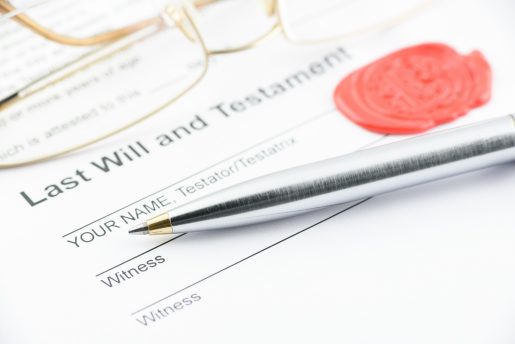
Estate Tax Returns

One of the worst things that can happen in life is the loss of loved ones. Unfortunately, we will all have to go through this and manage what they’ve left behind. But something many people are not aware of is the tax implications of what their loved ones have left behind or what they may need to do and report after a death.
It is the responsibility of the Legal Personal Representative (LPR) or the Executor (trustee) of the estate (named in the Will), to notify the Australian Taxation Office of the passing of the deceased. This person also has a duty to ensure that all obligations of the deceased are met and correctly actioned. They can seek professional assistance to aid in this process.
When someone passes away the trustees of the estate are required to lodge a final individual income tax return with the Australian Taxation Office from the beginning of the relevant financial year (1st July) to the date of death of the deceased. A lot of the time the trustees of the deceased estate will also need to then apply for, or request from their accountant, a tax file number for the deceased estate and lodge a tax return from the date of passing to the end of the financial year. Depending on the circumstances of the deceased and the terms of the Will, the estate tax return could need to be lodged annually for multiple years or only once.
How do you know if a deceased estate needs to lodge a tax return?
A deceased estate is required to lodge a tax return if the total net (of deductions) income derived from the estate from the date of death to the end of the financial year exceeds the tax-free threshold (the same as with an individual’s income tax return). The deceased estate may also lodge a return if it has tax withheld on investments or receives tax credits such as franking credits from dividends and you wish to receive a refund of the unused credits.
The net income incorporating realized capital gains from the deceased estate is dealt with in the estate return in multiple ways. One way is where there are no beneficiary ‘presently entitled’ to the income. This will mean that the estate will be taxed as if it was an individual lodging an income tax return and the trustee will be held liable to pay any tax liabilities that result, or receive any tax refunds given. This is typically the case where the administration of the estate is ongoing, not yet finalized or where there are specific restrictions within the Will
Conversely, if there are beneficiaries who are ‘presently entitled’ then the net income along with any tax credits of the deceased estate is distributed to those beneficiaries for tax purposes, and each beneficiary will be required to record that in their income tax return for the relevant year. Receipt of income from the deceased estate for tax purposes should not be confused with gifts under the Will.
If you are the LPR or the executor of an estate when someone passes away WLF can provide the professional advice and service that you need. We will assist you in completing all tax matters and other necessary requirements, guiding you through the process to ensure all obligations are met so that the estate can be settled.
Nathan Wallace
Accountant, Business and Personal Advisory

